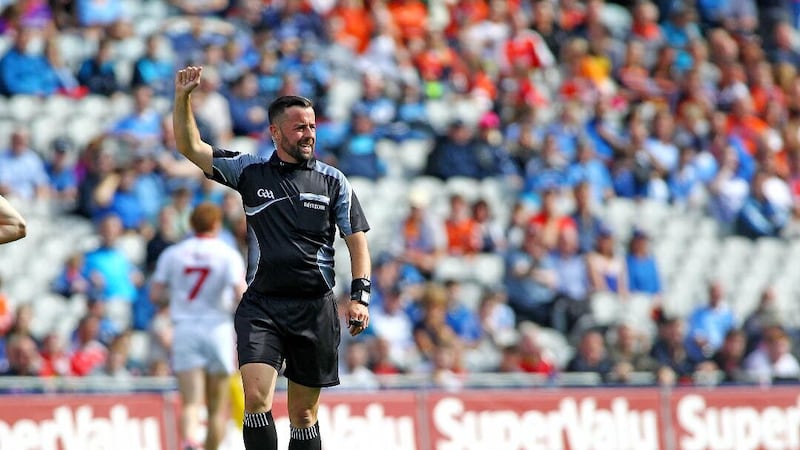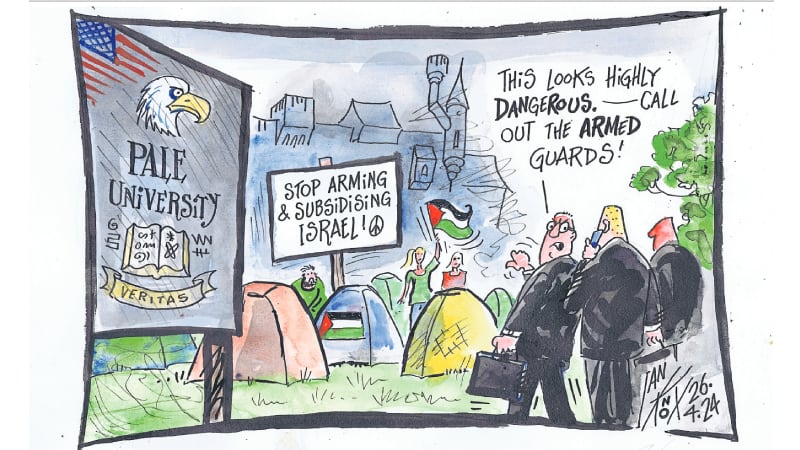The DUP have a long history of political errors. Their current faux pas, enthusiastically supporting a Brexit campaign with no obvious economic benefits for Northern Ireland, is a catastrophic blunder. Not surprisingly, they failed to articulate any potential improvements from Brexit or address any of the potential adverse consequences. Nelson McCausland noted, with a reckless candour, that he did not care about the consequences. This echoed the irrational approach to Europe of their founder who viewed the EU as a product of the anti-Christ (Pope) as prophesied in the Book of Revelations. Ultimately, they assumed that Brexit would distance Britain from the Republic of Ireland and copper fasten the union.
The DUP completely failed to understand how UK withdrawal from the EU would alienate nationalists living in border areas whose daily life and livelihood would be seriously disrupted. Sammy Wilson claimed that the widespread application of electronic devices could mitigate any negative impact of Brexit on cross-border trade. He is now strangely reticent about how this system could be applied to obviate the curtailment of cross-channel trade.
The threat of a hard land border in Ireland was cunningly and hypocritically exploited by Sinn Féin who made a dramatic volte-face. Republicans, long-time Euro sceptics, incredibly morphed into committed Europeans. What makes the EU now so acceptable to them? If the DUP had any understanding of nationalism the alarm bells should have been ringing. But as we know the DUP is tone deaf.
Unloved Brexit begot the highly contentious protocol which in turn generated misguided nationalist euphoria based on the assumption that it would distance Northern Ireland from Great Britain and accelerate Irish unification. However, there is every reason to believe that nationalists will also be collateral damage with the introduction of the protocol. Northern Ireland will be governed by two sets of conflicting rules imposed without consultation or consent. These regulations will apply to a wide range of activities within Northern Ireland including health care. This will undoubtedly increase administration costs and complexities – thus impairing performance. The problems will only increase as GB and EU regulations diverge further in the future. We may reasonably ask if the protocol is a viable proposition. Both the DUP and Sinn Féin have been driven mainly by constitutional considerations in response to Brexit with the protocol setting Northern Ireland on the road to a very uncertain future. Former PM Terence O’Neill once said that “Ulster was at a crossroads”. It would now appear to be at spaghetti junction without a sat nav heading for unchartered territory.
GEORGE WORKMAN
Donabate, Co Dublin
Russian red lines
Dennis Golden’s letter (April 18) is too fragmented to pass comment on, but I will state this to him – Russia put forward red lines to the US and Europe, acting under the Nato banner, who ignored these regular warnings until Russia acted, then they feigned outrage over this current incursion. Among these red lines was that Ukraine did not possess nuclear weapons, did not join Nato and remained neutral. President Zelensky stated that he would resume a nuclear arms process, probably encouraged by his western masters, so you now have the result. The Donbass region, which has been under constant bombardment by Kyiv’s forces for eight years – with 15,000 dead, mostly civilians – produced no outrage over this bloodbath, but then the media, in general, were silent about this action: Why? The Crimea returned to Russia after a referendum, with more than 90 per cent in favour. Nikita Khrushchev, himself a Ukrainian, gave the Crimea to Ukraine without a vote but, as it was part of the USSR, it made no real difference until the dissolution of the Soviet Union in 1990. A coup started in Maidan in 2013/4, with America’s Victoria Nuland running the show, which lead to the Crimea and Donbass regions opposing this turn of events and so it continued to this day. Russia has recently recognised the Donbass region as fully autonomous, which was part of the Minsk accords.
Don’t believe the fairy stories that are currently put forward as news. This is what passes as truth in the western media and, as there is now no challenge to it. You either listen to it, read it or search for options, which are not very appealing options, are they?
EDWARD MURPHY
Ballycastle, Co Antrim
Britain’s trade not ‘collapsing’
Brian Feeney (April 27) writes that “Britain’s trade is collapsing because of Brexit”. However, the most recent study by the ‘UK in a Changing Europe’ research group found that so far there has been a reduction in imports from the EU but exports to the EU have held up.
To quote from their report ‘UK trade in the wake of Brexit’: “We estimated that the implementation of the new trade relationship led to a sudden and persistent 25 per cent fall in UK imports from the EU, relative to the rest of the world. In contrast, we found a smaller and only temporary decline in relative UK exports to the EU.”
Of course it is still early days, and of course it is not easy to definitively separate the effects of Brexit from those of the pandemic, but clearly Britain’s trade is not in fact ‘collapsing’ because of Brexit.
DR D COOPER
Berkshire, England
All political parties should discuss the protocol
Every household and business in Northern Ireland will pay more for a wide range of goods because of the Northern Ireland Protocol. Most people will have noticed the change already. For those interested in delving into details the Department for Infrastructure committee meeting held on March 16 this year can be found on the internet.
In the current run up to the May 5 election it appears the main political supporters of implementation of the protocol – Alliance, SDLP, and Sinn Féin – do not want to talk about it on the basis that they want to focus on the urgent matters such as the cost-of-living crunch.
This misses the important point that the protocol is already contributing to the cost-of-living crunch. The other factors such as the pandemic and war in Ukraine are outside local political party control, but the cost increases due to the protocol are well within their sphere of influence to mitigate.
It would therefore seem logical that constructive discussion of the protocol from an economic perspective is an urgent matter in order to help ease the cost-of-living hikes that we all face.
JAMES MARTIN
Dromore, Co Down







